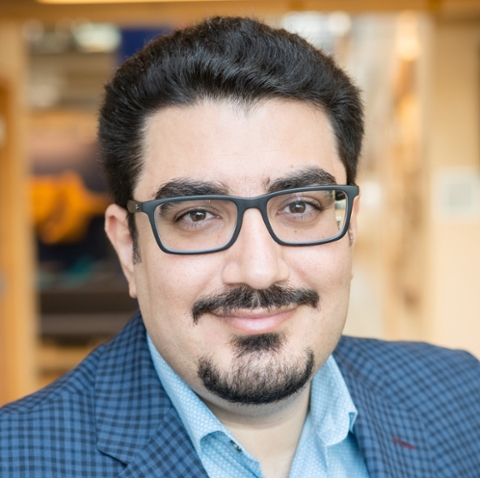
Before joining Queen’s University, Dr. Ehssan Koupaie was an NSERC Postdoctoral Fellow at the Department of Chemical Engineering and Applied Chemistry at the University of Toronto. He has been also affiliated with BioZone, The Centre for Applied Bioscience & Bioengineering Research and The Pulp & Paper Centre at the University of Toronto as well as The Bioreactor Technology Group at the University of British Columbia. Dr. Koupaie received his PhD in Civil and Environmental Engineering from the University of British Columbia, Canada, in 2017. During his PhD, he collaborated with an interdisciplinary team of researchers from environmental engineering, electrical engineering, and physics disciplines; a collaboration that led to the development of a novel energy-efficient radio frequency (RF) thermal hydrolysis technology for enhanced bioenergy recovery from municipal biosolids.
Research Interests
We live in a world in which both energy systems and waste management practices are undergoing change. The threat of climate change due to the release of greenhouse gases along with soaring energy demand and natural resource depletion are major driving forces behind the creation of more sustainable strategies for the management of organic waste streams. In this regard, the implementation of technologies such as anaerobic digestion (AD) and fermentation processes that can achieve simultaneous treatment and energy/resource recovery is playing a significant role in the circular economy. Organic waste includes but not limited to food waste, wastewater sludge, animal manure, pulp & paper sludge, and agricultural biomass. In Canada, more than 22 million tons of food waste, 30 million tons of municipal sludge, and 50 million tons of pulp & paper sludge are produced annually. The improper disposal of organic waste poses not only environmental, social, and health risks to the local area but also has severe impacts on the global environment. For instance, the disposal of 1.3 billion tons of food waste in landfills participates in the annual release of more than 3 million tons of CO2, a known greenhouse gas, worldwide.
Our research revolves around Environmental BioEngineering and aims to generate sustainable, cost-effective, and energy-efficient techniques for enhanced conversion of organic waste into bioenergy, biofuels, and value-added chemicals. Our team not only employs innovative approaches for answering some of the fundamental questions in the field but will also investigate ways to address the major limitations of the currently used technologies. Our research integrates the principles and practices of anaerobic digestion, dark fermentation, thermal hydrolysis, microbiology, and nanotechnology. The research is interdisciplinary and provides an opportunity for the collaboration of researchers with expertise in environmental, chemical engineering, and bioprocess engineering, environmental microbiology, and nano engineering.
Our research is currently focusing on the following areas:
Fall
CHEE 342: Environmental Biotechnology
Winter
APSC 200: Engineering Design and Practice (Engineering Communications)
CHEE 361: Engineering Communications, Ethics and Professionalism